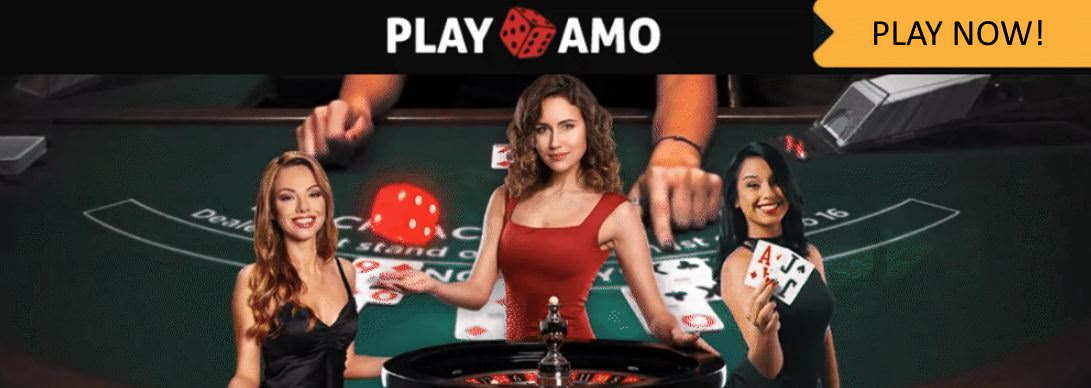Die wenigsten Blackjack-Spieler kennen die Even-Money-Regel, geschweige denn wissen sie, wie man sie richtig spielt. In diesem Leitfaden zum Blackjack mit Even Money wird erklärt, wie diese Regel funktioniert – und warum Sie sie unbedingt vermeiden sollten.
What is Blackjack with Even Money?
Imagine the scene: You receive a Ace and a face card, which gives you the coveted blackjack and - normally - a nice payday. But then you realise that the dealer's face-up card is an ace. Now you get nervous, because if the dealer's down card is a ten, your hand is a draw and you get no value for your blackjack hand.
Where do we play blackjack online?
The best Experience at blackjack we have in the Playamo Live Casino made. In my opinion, that's where it's at, BEST SELECTION on Tables with live dealers and you can train very well for the real casino! Compared to other online Casinos the winnings at Playamo are really paid out and that's why I would recommend the Playamo online casino definitely recommend!
The Playamo Casino has many live tables for blackjack and a quick Payout from Win.

At this Point you can ask for even money in most casinos. This means that you can invoke the rule before the dealer reveals his face-down card, and that you can use your Insert are paid out at a ratio of 1:1, regardless of which hand the dealer still has.
The reward is that you win some money, no matter what.
The risk is that the dealer ends up with no blackjack, and you would have won even more.
Most players who abuse the even money rule assume that because there are so many tens, jacks, queens and kings in the deck, it is very likely that the dealer will get a blackjack. Instead of facing the misery of a push where they only get their bet back, they get greedy and go for the even money.
You have probably already heard of the Insurance beim Blackjack gehört, die allen Spielern am Tisch angeboten wird, wenn der Dealer ein Ass auf der Karte hat. Wir haben bereits erwähnt, dass Sie sich niemals versichern lassen sollten, da dies langfristig nicht rentabel ist.
Aus demselben Grund ist eine Even-Money-Versicherung nie ein gutes Game.
Should I use Even Money in Blackjack?
In short: No. The math just doesn't add up. You rely on the dealer playing blackjack so often in the long run that your move with Even Money will pay off. But in reality, that's not going to happen.
Let's take a blackjack game with six Packs of cardswhere you have a blackjack and the dealer shows an ace. At 96 Maps with a value of ten (tens to kings), there is a 30.7 per cent risk of Opportunitythat the dealer has one of them to score a blackjack.
So that's a 30.7 per cent chance that your hand will be a push. So it's much better to call even money and secure a win, you might think. Wrong.
Look at the big picture: There is a 69.3 % chance that the dealer's face-down card will NOT count as 10, i.e. this is the state of the game if you do nothing:

In 7 % of the cases, the dealer has a blackjack and you win 0 winning units.
In 3 % of the cases, the dealer has no blackjack and you win 1.5 units (a 3:2 payout).
If you calculate these contingencies, you'll find that your blackjack hand is worth about 1.04 units. So if you bet $10, the expected long-term profit on your blackjack hand, at least if the dealer's up card is an ace, is $10.40. Is it any wonder that casinos are eager for you to take even money and settle for $10 every time?
The casinos are not being sneaky, of course. They are just clever. They need to make money in order to survive, and that's why Rules like these have a tiny blackjack house advantage that helps them win.







